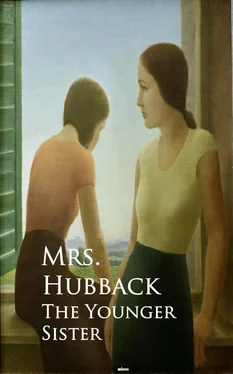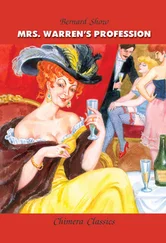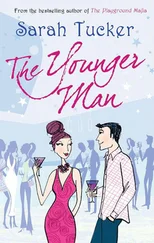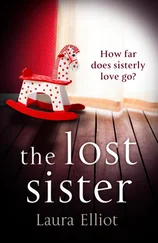"No, and I do not mean to do it," replied she; "be satisfied with your own conjectures."
"I must if you will say no more. And
you
, Miss Emma, how were you pleased with your evening?"
"Very much—I have come back much wiser than I went; I have made up my mind that the more elevated the situation the less pleasant it would be unless one had been brought up to it."
"Then you would not change places with Lady Osborne?" said he, fixing a pair of very penetrating eyes on her. As she had noticed Lord Osborne's looks without the remotest idea of his meaning anything but to put her out of countenance, and formed no airy speculations as to the possibility of succeeding to the dominion at the Castle, she attached no peculiar meaning to his question.
"I think the supposition hardly a reasonable one," was her answer; "could you suppose I should wish to exchange with a woman old enough to be my mother—give up five and twenty years of life to be a wealthy middle-aged dowager in claret-coloured satin and diamonds."
Mr. Howard smiled.
"Remember," continued Emma as if retracting, "I mean no disparagement to your friend, who I have no doubt may be a very excellent and amiable woman, but I was speaking merely as she appeared to me to-day."
"There have been young Lady Osbornes," said he almost in a whisper, and as if rather doubtful whether or not to speak the words.
"I suppose so," replied Emma coolly, without the smallest embarrassment, but with a slight shade of reserve in her manner. She never allowed jesting on the topic of matrimony. He saw it immediately.
"Then what do you think you require to make you happy?" said he, to escape from the other subject.
"A very comprehensive question—I should like to know whether you expect a serious answer," replied she gaily.
"A true one, if you please."
"To be with those I love, and have money in my purse—I think that is sufficient: no—I think I should like a house too—"
"Very reasonable and moderate."
"But preserve me from the slavery of living
en grande dame
; I was not brought up to it—and nothing but habit could make such bonds sit light and gracefully."
"I believe you are right, and you must certainly be wise."
He looked at her with unmistakable admiration; she could not meet his eye, but coloured and fixed hers on the fender. In spite of her embarrassment, however, she felt a real pleasure in the friendly tone he had assumed, and hoped sincerely that the morning would not see him cold and formal again.
"Emma," said Elizabeth after they had retired for the night, "I am certain that Lord Osborne admires you very much."
Emma only smiled in reply.
"What do you think about it?" continued Miss Watson.
"That I wish he would find some pleasanter way of testifying his admiration," said Emma. "I do not know whether he is the only man who ever admired me, but he is certainly the only one who ever looked at me so much."
"Oh, we must not expect everything arranged just to our taste," replied Elizabeth; "and whilst you enjoy so much of his attention, you must not complain if he is not the most sprightly of admirers—the honour itself should suffice you. His rank is higher, if his wit is not brighter than Mr. Howard's."
"To mention them in the same breath!" cried Emma; "they are the antipodes of each other—as different in sense as in rank—what a pity their position cannot be reversed!"
"Oh, then your objection to being Lady Osborne is not after all to the rank but the man," cried Elizabeth, "and you are less philosophic than you pretended to be. But if Mr. Howard had been a peer, perhaps you would never have known him."
"Very likely not," said Emma calmly, "but I do not see what that has to do with it."
"Now don't pretend to be so very innocent and simple-minded, Emma; you know, as well as I do, that the two men are both in love with you, and you, ambitious monkey, not content with things as they are, and choosing between worth and rank, wish to have every advantage combined in one, for your own special acceptance."
"How can you talk such nonsense, Elizabeth?" said Emma coloring.
"I deny the accusation stoutly; it is you who are unreasonable, whilst I am talking in the most matter-of-fact way imaginable."
Emma was silent, and after waiting a minute, her sister began again:
"I wonder what Tom Musgrove will say when he hears we have dined at the Castle?"
"Some nonsense I dare say," replied Emma; "I believe his boastings were at the bottom of your curiosity to go there; you wished to surprise him."
"Yes I think I did—but was it like what you expected? it was all so grand and formal that
I
felt quite uncomfortable. I am glad to have been, and still more glad that I have come away."
"It was not the first time I have been in a large house," said Emma, "and I was not surprised at anything I saw; except that Lady Osborne should take the trouble of wearing so many jewels, and dress in so very juvenile a style."
"Were you not jealous, Emma? Did you not notice how she flirted with Mr. Howard?"
"For shame, Elizabeth, to say such things of our hostess."
"Nay, indeed it is only truth—I think he had much better marry her. I dare say she has a good jointure, and she may not be very disagreeable to him perhaps! what would you say to that?"
"That he must be a very different Mr. Howard from what I fancy him, if he can be induced to marry for the sake of a jointure," replied Emma firmly.
"But perhaps he is in love with her," persisted Miss Watson.
"That alters the case," said Emma who did not believe anything of the kind.
"I rather think he must be," continued her sister, "he looked so much pleased at her calling him to the sofa. Or I will tell you another idea that struck me, perhaps he is attached to Miss Osborne, and pays his court to her mother to gain her good word."
"My dear Elizabeth," cried Emma rather impatiently, "you have within the last five minutes, concluded Mr. Howard in love with three different people. Some of your conjectures cannot be right, but they may all be wrong—pray leave off guessing, since you cannot arrive at any conclusion."
"I like Miss Osborne," said Elizabeth, after a moment's pause.
"So do I," replied her sister.
"Better than Miss Carr," continued Miss Watson, "I have a little fear of Miss Carr; but, Emma, I wonder how my father and Margaret get on, I am afraid he will find it very dull; she does not like backgammon or reading out loud—and this snow will prevent his getting the newspaper, or seeing any one to amuse him."
"Yes, I am afraid so," sighed Emma, "it is very pleasant here, but I wish we were home again."
"I wish home were like this," continued Miss Watson, "as airy and cheerful, and elegant-looking—what a nice room this is—we have not such a room in our house—and I am sure our furniture never looks so well, take what care I can of it. You had better take this for your own room when you are Mrs. Howard."
"I really wish you would not talk in that way, Elizabeth," remonstrated Emma, "it can do no good, and it will make me feel very uncomfortable."
"I beg your pardon, I will try not," said her sister laughing.
Long after her sister was asleep, Emma herself was thinking over the events of the morning, and recalling to memory every tone and word and look of Mr. Howard. She weighed them all, and tried to comprehend the cause of the changes which seemed to her rather sudden. She could hardly suppose it a caprice—she did not think him guilty of that—but why vary so completely.
She wished to be liked by him; she was pleased with the society both of himself and his sister, and he feared if she did not approve of her manners, or disliked her conversation, his sister likewise would draw back from the friendship which seemed to have begun so prosperously, and she should lose the pleasantest acquaintance she had found since returning to her father's house.
Читать дальше












